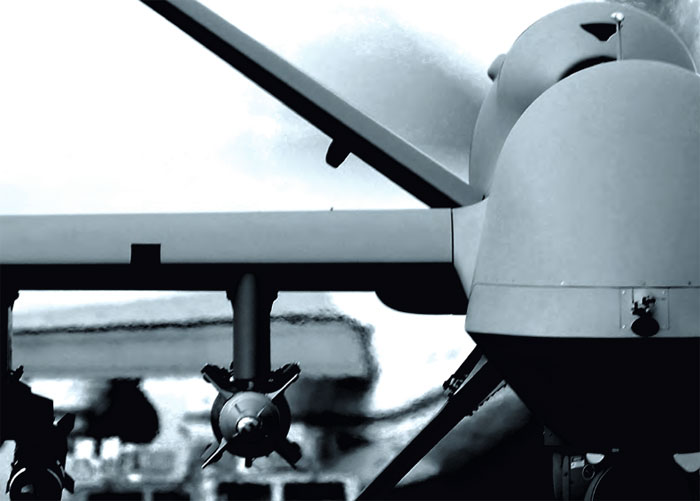By collecting and sharing data on telephone communication from Somalia with the United States the Netherlands is indirectly supporting human rights violations.
Drones, unmanned remotely controlled airplanes, fire rockets at locations based on phone signals, without it being clear if the target is the right person and without him/her having the opportunity of a fair trial. The fact that the Netherlands cooperates with the illegal drone programme in this way could be a violation of International Humanitarian Law and International Human Rights Law.
Innocent deaths
Since 201, American drone attacks have regularly taken place in Somalia. Drone attacks are considered to be controversial in the international community. The US uses drones in Somalia to execute people that are suspected of terrorist activities, without a fair trial or hard evidence. According to the British Bureau of Investigative Journalism an estimated 4161 people have been killed in Pakistan, Yemen and Somalia by American drones of which a quarter are confirmed civilian deaths. That means a thousand innocent civilians being murdered and three thousand suspects that did not have the possibility to defend themselves in court.
The special rapporteurs for the United Nations, Ben Emmerson en Christof Heyns, have recently published reports in which they raise serious questions on the legitimacy of drone strikes and state that the strikes undermine the right to life. Dutch minister of Foreign Affairs Timmermans said in January that it was his ‘personal ambition’ to strengthen the international legal and humanitarian laws of war within the UN and NATO. However, by supplying the US with data that can be used for targeted killings, the Netherlands, perhaps unintentionally, contributes to undermining these international legal principles.
Respecting human rights
By law, the Dutch intelligence and military security services are obliged to check if the intelligence they share with other countries is used for human rights violations. On the 11th of March the commission that monitors Dutch Intelligence and Security services presented its report. It states that Dutch intelligence services ‘trust heavily on the idea that foreign intelligence services respect human rights and act according to their own national laws’, but also that ‘in light of recent events it is necessary to check if this trust is still justified’.
Recently PAX and Reprieve invited two victims of drone strikes from Pakistan to the Netherlands. During their visit Kareem Khan and Noor Behram met with Dutch politicians and journalists and discussed their experiences of ‘living under drones’. Kareem Khan lost his son and brother during a drone strike. Noor Behram is a journalist that has been travelling around Pakistan and documenting the effects of drone strikes since 2007. During their visit they not only spoke of the loss of their loved ones, but also about the lack of transparency and accountability by the US over the results of their drones strikes.
Clear agreements
In light of this transparency and accountability we ask minister Plasterk to guarantee that Dutch intelligence services stop sharing intelligence with the United States as long as there is a change that it will be used for drone strikes in Somalia. This is in agreement with the wish of a majority of Dutch parliament, as can be seen in the adopted motion of the Socialist Party in November 2013. The Minister must also, especially regarding the mission in Mali, make clear agreements regarding the exchange of intelligence, so that it will not be used for extrajudicial executions or counter productive military operations.
As long as this has not been done the Netherlands contributes to the illegal drone war and we remain jointly responsible for the innocent victims of these strikes.
The Dutch version of this article was published in the newspaper Trouw on Saturday, April 5th 2014.
Jan Gruiters is general director at PAX, the Dutch peace organisation that amongst other things does research into how drones influence the security op people
Kat Craig is Legal director of Reprieve, a British human rights organisation that represents drone victims




